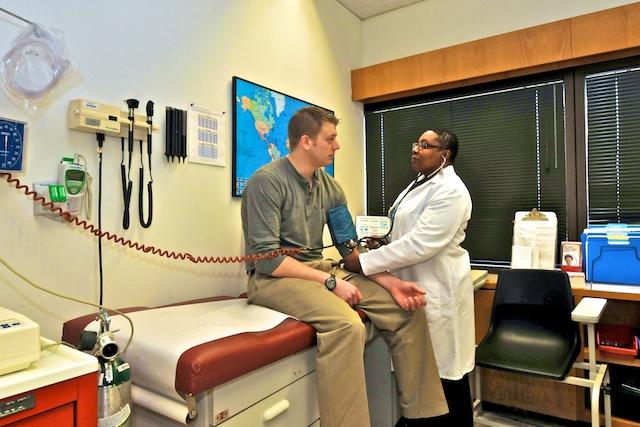According to the Office of Communications, 26 percent of the $27-per-credit mandatory fee that undergraduates pay is given to health services. This means that students pay $6.96 per credit per semester, maxing out at 12 credits, so the maximum a student pays in health services fees is $83.50 per semester. According to Kathleen McAndrew, executive director of University Health Services (UHS), the department “provides services required of state regulations, and also offers many services based on these fees.”
Regarding mental health services, according to the UHS website, “brief and focused therapy will be offered at no charge to those students whose needs and resources make the UHS Counseling Center an appropriate choice based on the results of consultation and/or evaluation and the capacity of the department.” That is, the cost of the service is covered by student fees.
McAndrew also explained that student fees pay for “some departmental overhead, campus wide infection control programs, medical crisis and disaster preparedness, and consultation, review of all student immunization records, working with others on campus for healthy and safe campus community, much consultation with professors administrators, and health insurance administration.” In addition, a program of Health Education and Wellness provides prevention information, education and outreach for topics ranging from alcohol and tobacco, to stress management and prevention of HIV and sexually transmitted infections.
As of March 30, UHS also offers nutrition counseling by appointment, at no extra charge to students. The first consultation is a 40-minute appointment, and subsequent visits are 20 minutes. The nutrition counseling will be administered by Danielle Shargorodsky, RD, LDN, Sodexo’s regional nutritional manager.
Not all medical services are included in the student health fee, but according to the website, “UHS General Medicine currently accepts and can bill a variety of commercial health insurance plans. The amount that you pay for services provided depends upon the schedule of deductibles, coinsurance and copayments associated with your health insurance plan.” McAndrew notes that this is the first year that this “billing model” has been implemented, and that their “billing revenue is growing.”
A treatment or diagnostic procedure done at UHS may end up costing you less here than elsewhere, depending on your insurance. This is because, according to McAndrew, UHS “accept[s] insurance companies payment as payment in full […] for the services they provide on site.”
Same day treatment can be given to people who have minor lesions or burns, uncomplicated urinary tract infections, allergies, sore throats, flu symptoms and other short-term medical issues, according to McAndrew.
Sexual health services include evaluation of sexually transmitted infection, pregnancy testing, contraceptive counseling and emergency contraception.
The office also has the ability to treat chronic conditions. Some of them include skin disorders, autoimmune disorders, cardiovascular and respiratory disorders, gastrointestinal issues and endocrine disorders. Thus, if you have high blood pressure, asthma, acne, acid reflux or diabetes, for example, you may be able to seek treatment here.
A sports injury can be evaluated and treated on-site, and sports physicals are also provided. Both men and women (students) can have their physical done at UHS, as well as gender-specific exams such as biannual PAP smears.
If the UHS cannot treat the problem, they refer the student to a facility that can
Laboratory services processed at the UHS on-site laboratory could end costing students less, because of the waived coinsurance policy. Offsite laboratory work does not qualify for the waiver.
Patricia Halon, director of general medicine at UHS, said of Shargorodsky, “As a registered dietician she currently supervises the preparation of food and develops menu plans, which are evidenced-based using the national nutritional guidelines.” Halon also pointed out that dieticians can help with a wide range of dietary issues, from diets to help lose or gain weight, to diet plans for people with health concerns like high cholesterol or diabetes.
As far as what students think about UHS, Alyssa Kelly, a psychology and sociology major, said, “I don’t use health services at all because I have my own doctor, I just never go over there.” On the other hand, psychology major Junior Pena has found the office to be helpful. “From time to time I use health services. […] So far they’ve been pretty good,” said Pena.
McAndrew stated that the department is “dedicated to keeping our costs down, [and] servicing students.” The UHS represents a mandatory charge to students whether they avail themselves of it or not, and is a much bigger enterprise than just a place to get a bandaid.

